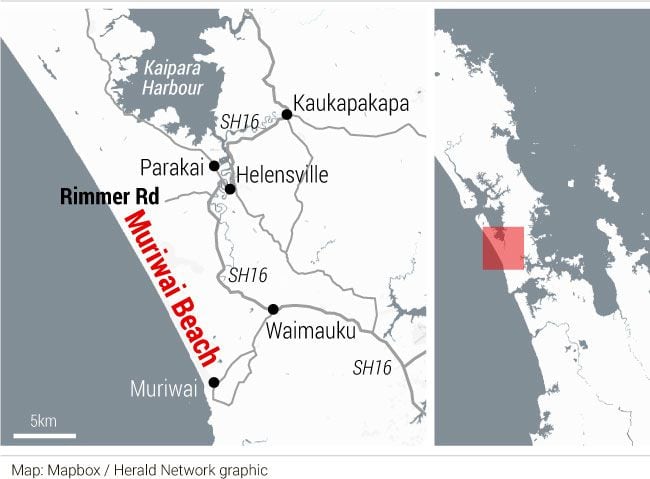Emergency services and two rescue helicopters have rushed to Muriwai Beach on Auckland’s west coast after a serious incident this afternoon.
A witness to the incident told the Herald a vehicle had been doing burnouts on the beach when the car flipped, throwing a teenage girl out and crushing her.
It was not known whether the young male driver had been injured.
A spokesperson for the rescue service confirmed two helicopters are at the scene on the beach and a police spokesperson confirmed they were also attending the incident.
None of the emergency services attending have confirmed the nature of the incident.
Fire and Emergency New Zealand shift manager Paul Radden confirmed four appliances were in attendance on Muriwai Beach, with crews from Muriwai, Shelly Beach, Whenuapai and Helensville. They were called to the scene at 2.38pm and referred the Herald to police as the lead agency for any further questions.
A spokesperson for Hato Hone St John ambulance service said they were notified of the incident but their assistance was not needed at the scene.

A person in Muriwai told the Herald he could see a rescue helicopter responding, along with “many police and fire [responders] heading up Muriwai Beach”.
The incident comes a week after Muriwai Beach re-opened to vehicles. Auckland Council decided in October last year to close the beach in an attempt to manage the impact of vehicles on the ecosystem, banning them from driving on the beach during the height of summer and other holidays such as Guy Fawkes weekend.
From late December to January 15 every year until 2026, the beach will be closed to vehicles.
“Unpermitted vehicle activity is having a major impact on some of our most threatened species and damaging the sand dunes,” said Auckland Council regional parks principal specialist Stephen Bell.
“We’ve already had reports of serious harm caused to wildlife in the area. People need to understand how fragile this environment is and be aware of how they impact on their surroundings, especially other visitors, shorebirds and animals on the beach.”
More to come.
Take your Radio, Podcasts and Music with you








